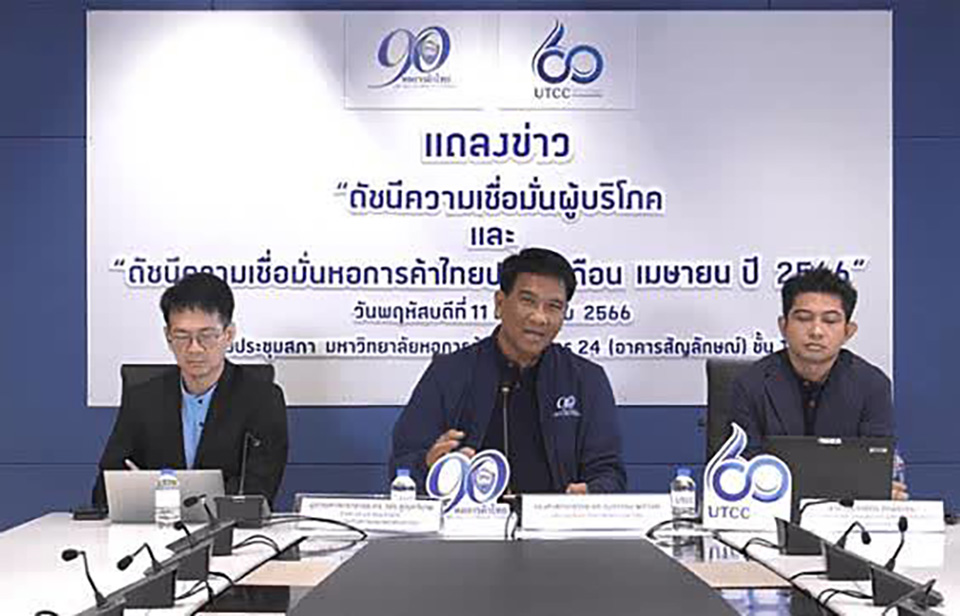
Consumer confidence in Thailand has risen for the 11th consecutive month, reaching its highest level in 38 months, with experts saying the increase is driven by factors including a reduction in COVID-19 infections, the recovery of domestic tourism, and lively election campaigns across the country.
The University of the Thai Chamber of Commerce (UTCC) reported that the consumer confidence index rose from 53.8 in March to 55 in April. Despite consecutive increases in the confidence index, the indicator remains below 100 points due to weak purchasing power and concerns about high inflation and interest rates.
According to UTCC President Thanavath Phonvichai, the government’s economic stimulus measures, such as the “We Travel Together” hotel subsidy and state aid programs, led to an increase in consumer confidence. Additionally, the rise in tourist arrivals during the Songkran Festival, the decreasing gasoline and diesel prices in the country, and the baht’s slight appreciation against the US dollar helped boost consumer confidence in April.

Despite the increase in consumer confidence, concerns remain about the high cost of living, including expensive electricity bills, and the global financial situation. The UTCC president warned that the economic slowdowns in the US and EU, the Russia-Ukraine conflict, and increasing interest rates could create pressure on the global economy, potentially leading to a recession that could impact Thai exports and purchasing power.
The UTCC also released the TCC Confidence Index, which measures the sentiment of the business sector and members of the Thai Chamber of Commerce in every province. The index rose to 51.9 in April, up from 50.5 in March, driven by a recovery in tourism and higher farm product prices. However, business operators are concerned about factors that keep affecting confidence, such as the PM2.5 situation, which affects the tourism industry, as well as rising electricity costs and minimum wage hikes proposed by some political parties. (NNT)





